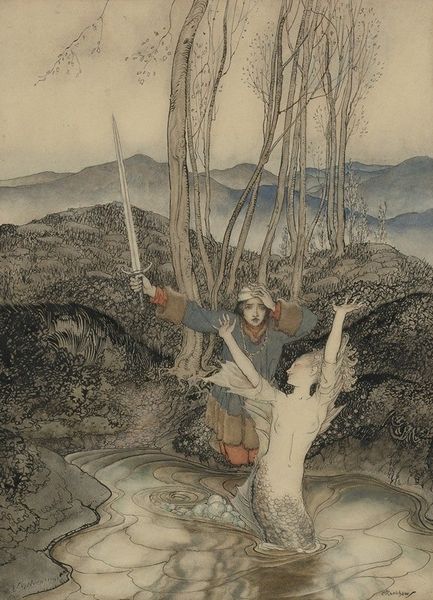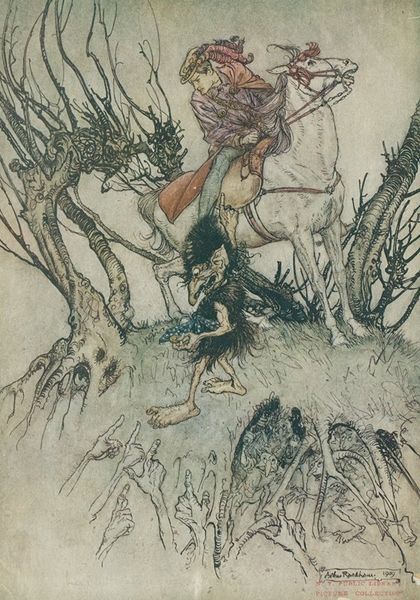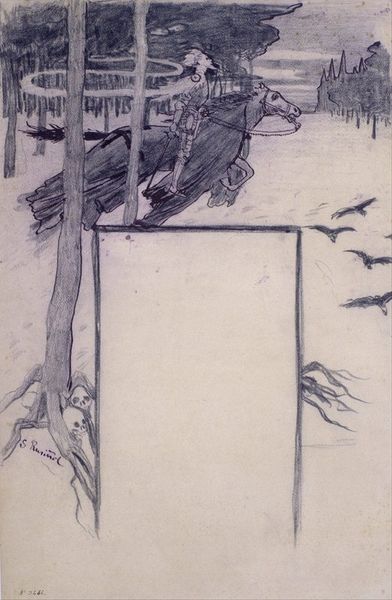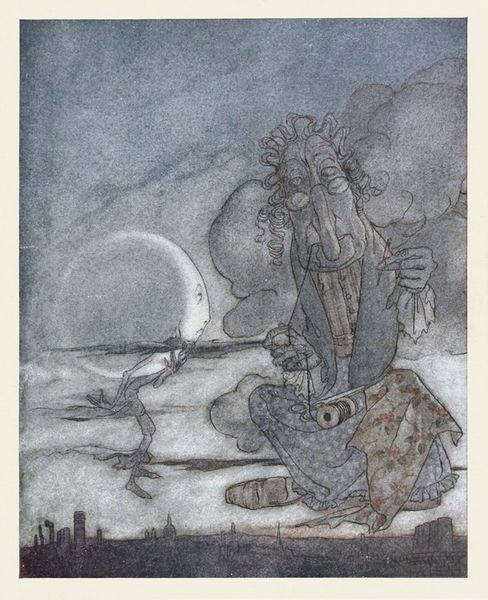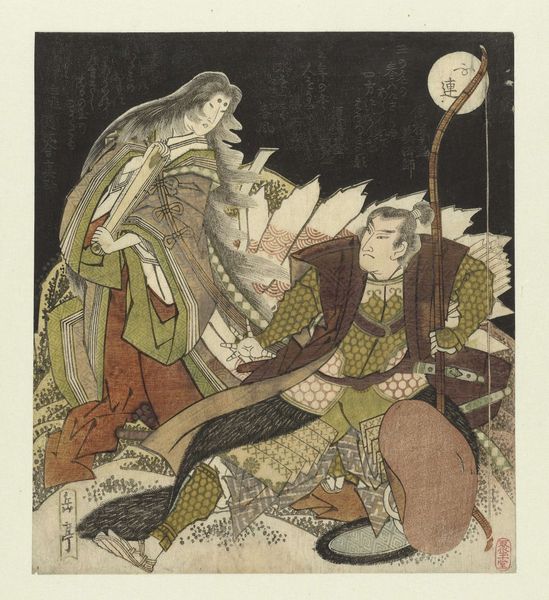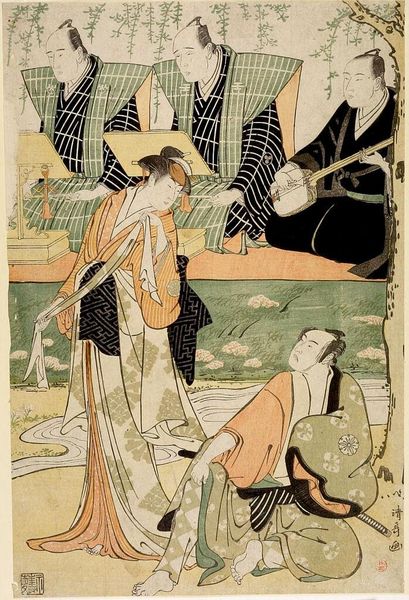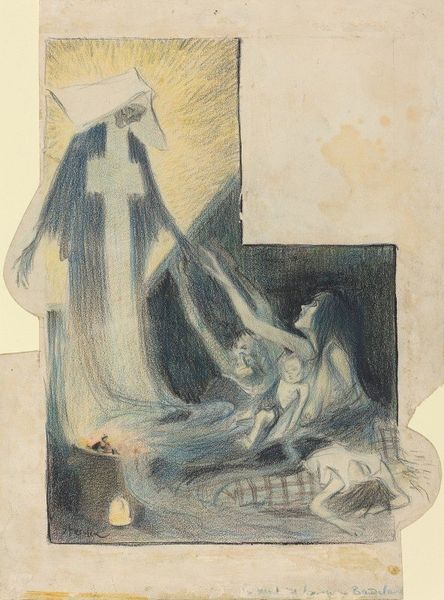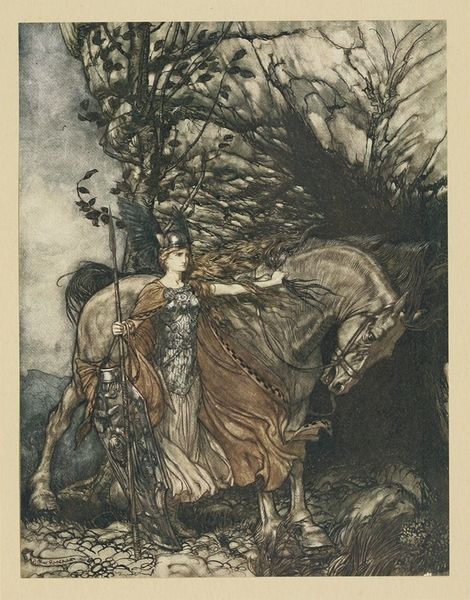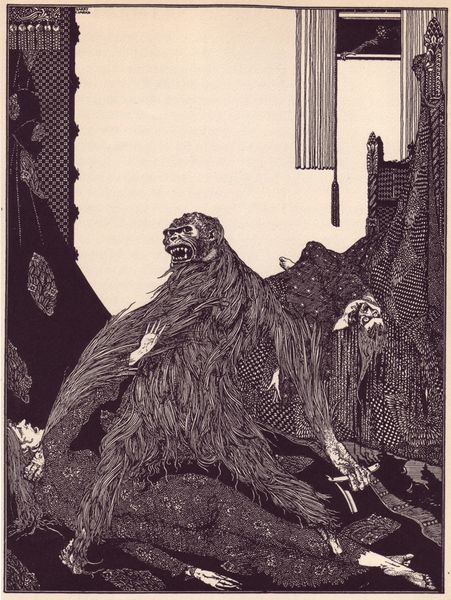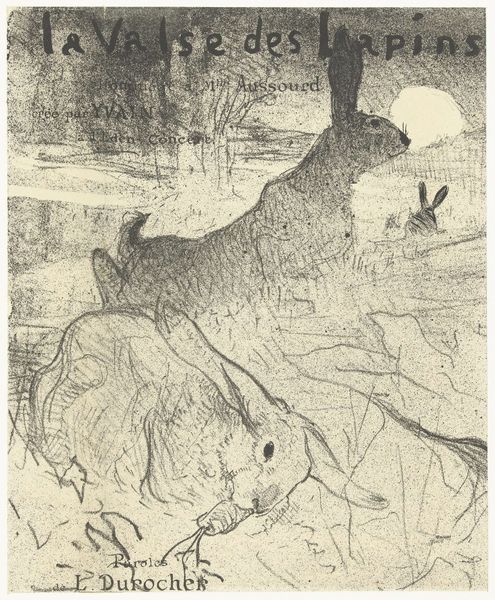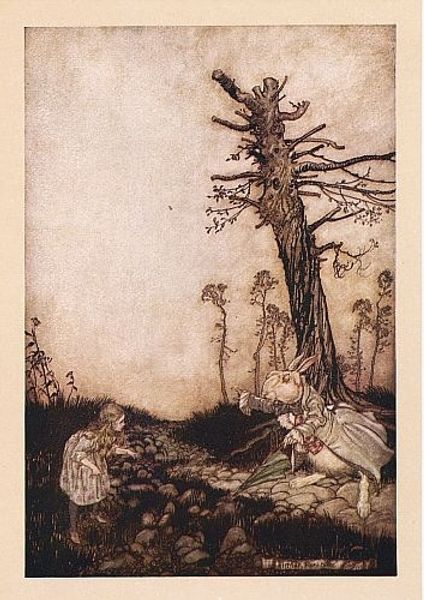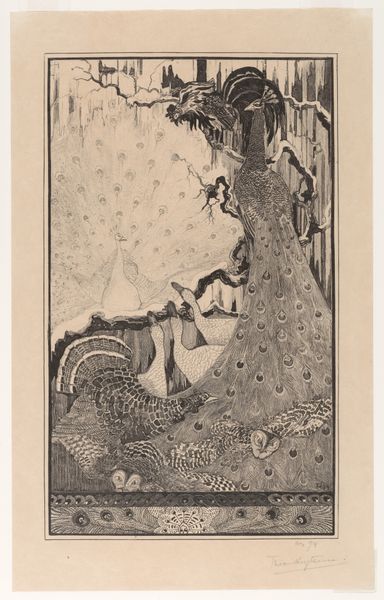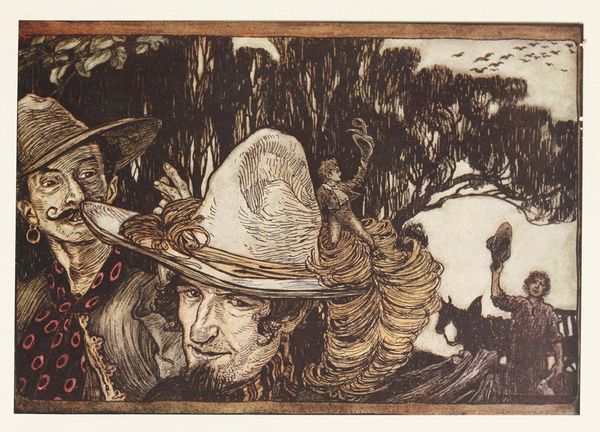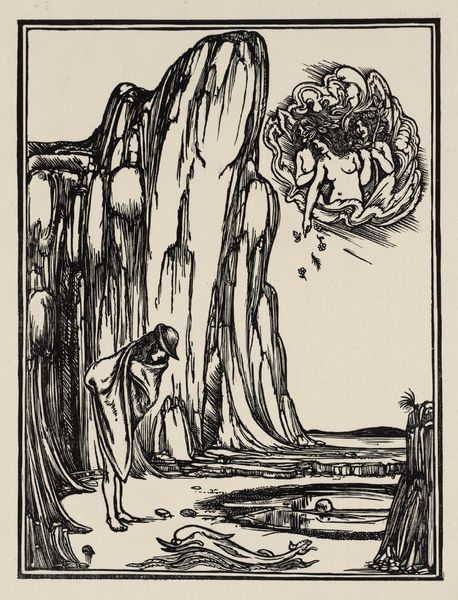
Copyright: Public Domain: Artvee
Curator: Let's explore "Jensina Proves a Born Housewife," a whimsical 1925 drawing by Arthur Rackham, rendered in ink and watercolor on paper. It’s part of a series illustrating a fairy tale, capturing a peculiar moment with, well, a remarkable cast. Editor: Remarkable is one word! My immediate thought is, what an unsettling scene. It looks almost surreal, like a dark comedic tableau vivant. Is that a puppet seemingly trapped amidst domestic chaos? Curator: The puppet figure definitely strikes a jarring note. But notice how Rackham uses the mole family to embody traditional domesticity. There's a clear hierarchy, even gendered roles represented. Look at the mother mole by the doorway with the little bonnet. There's also a larger one, seemingly a male figure, smoking a pipe above. What kind of statement, then, do you feel Rackham might be making with this juxtaposition of mole society, household chores, and this bizarre puppet figure at the center? Editor: Rackham’s deployment of those roles feels undeniably satirical. Given the era, could this illustration be interpreted as a critique of idealized domesticity imposed on women? The puppet, appearing lifeless while draped in drying laundry, perhaps symbolizes women as manipulated figures. The puppet becomes an allegory, representing the constraint of imposed domestic roles and a patriarchal structure embodied by those nonchalant, pipe-smoking moles looking down on it. Curator: An interesting perspective. Symbolically, water itself has long been associated with purification and renewal, perhaps a symbolic cleansing. Rackham was, after all, deeply inspired by folklore and Norse mythology. Laundry itself is quite symbolic and acts here almost as a shroud. Considering those multiple layers, it raises the complexity of Rackham's commentary beyond just patriarchal constraints and hints at themes of self-transformation through symbolic rituals. Editor: That’s a fair point. By employing water motifs so strategically, the work transcends a singular message, urging dialogue about tradition and potential. Still, I am most interested by that strange puppet. Its rigidity suggests a deep-seated resistance, or at least a haunting of past impositions. Curator: Rackham often layers his images with archetypes. His exploration of established societal systems are deeply personal but presented within established cultural motifs. Seeing how we have responded to "Jensina Proves a Born Housewife," it makes me wonder, what other visual allegories hide beneath the surface, waiting for our attention and exploration? Editor: It's certainly a thought-provoking work. I appreciate how Rackham uses humor to confront deeper cultural anxieties, offering space to question traditional expectations—even today.
Comments
No comments
Be the first to comment and join the conversation on the ultimate creative platform.
